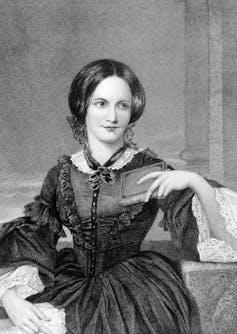
Linguistic diversity, like other types of diversity, can enrich life. It’s a truism that languages and cultures are closely allied. Some believe that language imposes its own unique perceptual grid on its users.
If this were true, translation would be virtually impossible. On the other hand, it’s generally accepted that a translation seldom reproduces the exact sense of the original text; nuances don’t travel well.
The French phrase joie de vivre can be translated as “joy of living,” but that doesn’t capture the Gallic flavour of the original “joie,” which is why anglophones feel impelled to borrow the French phrase.
My forthcoming book Words in Collision: Multilingualism in English-Language Fiction shows how language diversity has been employed by authors.
Resistance, power conflicts

In English-language fiction, a non-English tongue can provide a liberating alternative to conventional norms of behaviour. In Charlotte Brontë’s 1849 novel Shirley, French serves the dual English protagonists, Shirley and Caroline, as a means of resisting the claustrophobic grip of their patriarchal milieu.
In other works of literature, linguistic clashes feed into broader power conflicts. Shakespeare’s play Henry V, likely written in 1599, includes a remarkable amount of French dialogue. In the play, a literal war on the battlefield is paralleled by a figurative war between languages. Shakespeare’s Dauphin brags about the merits of his horse in a mixture of both languages that is likely to strike spectators as absurdly pretentious:
“Ça, ha! He bounds from the earth as if his entrails were hairs; le cheval volant, the Pegasus, chez les narines de feu!”
A less violent but still earnest war of words is fought in Henry James’s 1890 novel The Tragic Muse. Here, French language becomes identified with the art of the Paris theatre, while English represents the antagonistic forces of Anglo-Saxon sobriety.
Political struggles, decolonizing
Linguistic collisions are rife in works of post-colonial literature, where they coincide with political struggles between regimes of European hegemony and decolonizing movements.
A recent example is Arundhati Roy’s 1998 novel The God of Small Things. In it, English, a holdover from the British Raj, vies for supremacy with Malayalam, the regional language of Kerala where Roy was born.
In Chimamanda Ngozi Adichie’s 2003 novel Purple Hibiscus, Eugene, the father of the protagonist, Kambili, imposes English speech on his Igbo-speaking Nigerian family, while they resist by speaking Igbo in private.
Monolingualism as ideology
Comparative literature scholar Sarah Dowling studies “translingual poetries” — poetry written in multiple languages “informed by feminist, anti-racist, immigrant rights and Indigenous sovereignty movements.” Dowling prefers the term “translingual” because unlike “the term multilingual, which is often associated with dominant multiculturalisms, the term translingual typically describes critical, oppositional and survival practices.”
“Monolingualism is an ideology, a structuring principle that touches every aspect of social life,” writes Dowling. “It shapes how we understand ourselves and our units of belonging by constructing homologous relationships between mother tongue, ethnicity and nation.”
Dowling’s insight rings true. As a student, Stephen Miller, the architect of ex-U.S. president Donald Trump’s exclusionary immigration policy, protested against the presence of Spanish in his Southern California high school.
Signs of promise
Polyglot texts (texts using multiple languages) have become increasingly common; they are salvos fired against arrogant monolingualism. Monolingual English speakers would do best to join the multilingual world and welcome these texts.
The continuing emergence of polyglot texts like Julia Alvarez’s 1996 poetry collection The Other Side/El Otro Lado or Quiara Alegría Hudes’s memoir My Broken Language (2021) demonstrate cosmopolitanism rather than insularity.
Such a development is likely to enhance our joie de vivre, however we choose to translate it.
Michael Ross ne travaille pas, ne conseille pas, ne possède pas de parts, ne reçoit pas de fonds d'une organisation qui pourrait tirer profit de cet article, et n'a déclaré aucune autre affiliation que son organisme de recherche.
This article was originally published on The Conversation. Read the original article.







